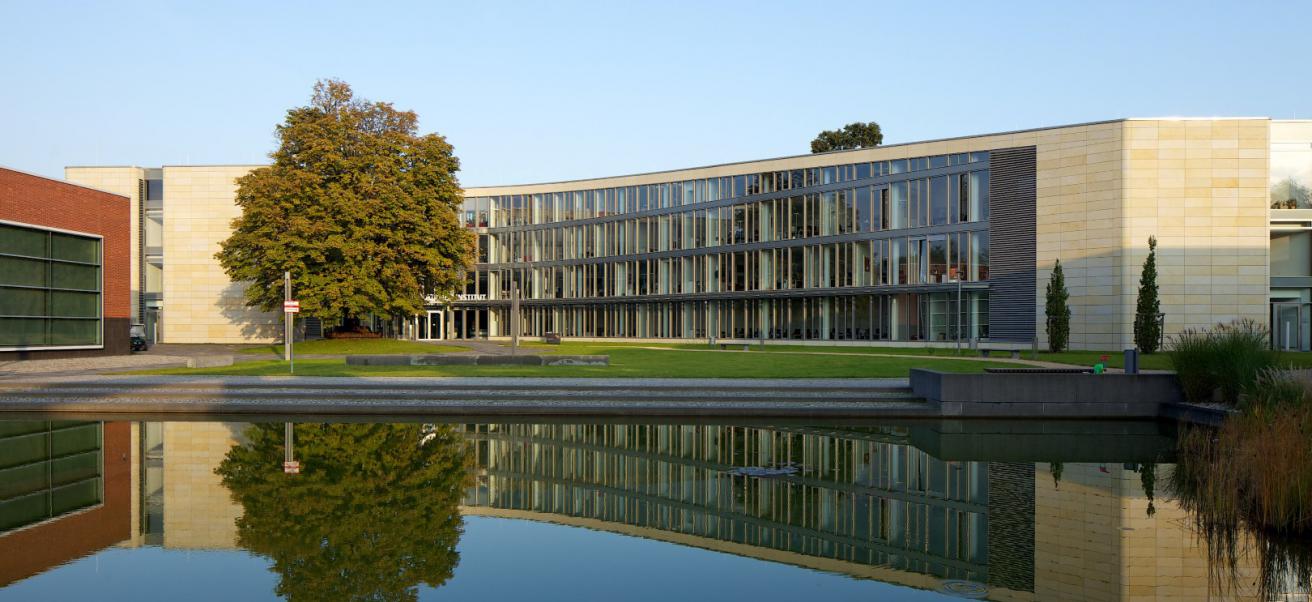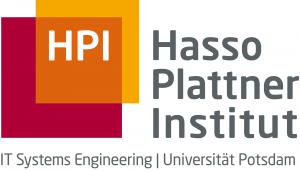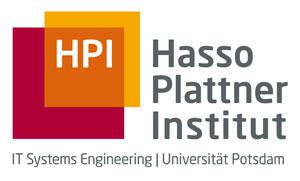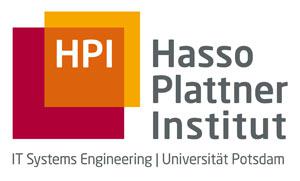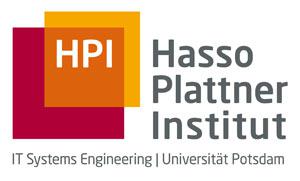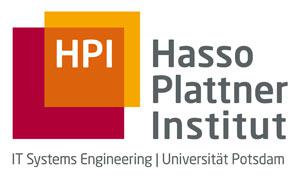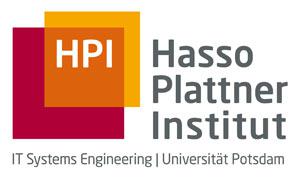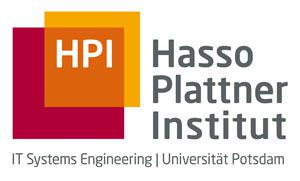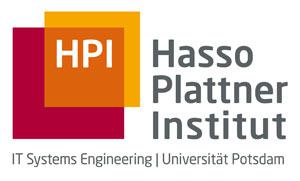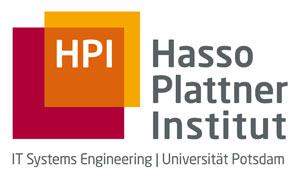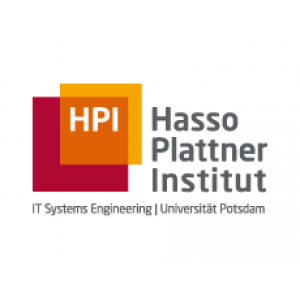
Hasso-Plattner-Institut für Digital Engineering gGmbH
The Hasso Plattner Institute (HPI) is one of a kind on the German university landscape: It is the only institute offering a degree in IT Systems Engineering – a hands-on alternative to conventional computer science programs. HPI’s School of Design Thinking offers students from all branches of study an innovative, supplementary program in the creative development of particularly user-friendly products and services. Via its Internet-educational platform, openHPI, HPI offers anyone interested from anywhere in the world free, open online courses on information technology. HPI is the first and, to date, the only university institute to be funded entirely by private donations.
Founded in 1998, HPI has repeatedly received excellent scores in higher education rankings.
For example, in the latest ranking by the Centre for Higher Education Development (CHE), HPI has again attained first place for the best Master’s programs in computer science in German-speaking countries.
The German federal government acknowledged the achievements of Hasso Plattner Institute and its founder by holding its first national IT summit at HPI in December 2006. The Institute works with internationally renowned academic institutions such as Stanford University, the Massachusetts Institute of Technology (MIT), the Technion in Israel, as well as universities in Cape Town, Nanjing and Peking. On the industry’s side, Microsoft, SAP, IBM, Hewlett Packard, Intel Fujitsu and ECM are only a few of HPI’s important partners.
A Public-Private Partnership
The HPI was founded as a public-private partnership by the non-profit Hasso Plattner Foundation for Software Systems Engineering. The Brandenburg state government contributed by providing the site for the institute, a prime location next to the Griebnitzsee lake in Potsdam-Babelsberg. The buildings were constructed in 2000. A further building was opened in 2010.
450 Students, more than 60 Professors and Lecturers
Since the academic program began in winter semester 1999/2000, more than 700 students have received the Bachelor’s degree and more than 300 students the Master’s degree. In addition, PhDs have been earned by more than 60 students, as well as the completion of one postdoctoral qualification. About 120 doctoral projects are in progress at this time. Currently, around 450 students attend the Institute, from these 250 are in the Bachelor’s program and 200 in the Master’s program. Students at HPI learn to understand, develop and master the intricacies of sophisticated IT systems and software products.
They acquire the skills they will need to take up top-level management positions in the IT industry, such as software architect, project coordinator or Chief Technology Officer (CTO). One of HPI’s primary goals is to foster an engineering culture in the field of IT systems engineering. Overall, there are ten professors at HPI and over 50 lecturers, guest professors and contract teachers. The professors at HPI are usually appointed in consultation with the University of Potsdam. Students are enrolled at the University of Potsdam and receive an internationally accredited Bachelor of Science or Master of Science degree upon graduation. The collaboration between the non-profit Hasso Plattner Institute for Software Systems Engineering GmbH and the University of Potsdam is governed by a contractual agreement.
Ideal Conditions for Studying and Working
The Institute in Potsdam is a pioneer in its field, and its outstanding technical and structural facilities and excellent student to teacher ratio allow it to provide the high-flyers of tomorrow with optimal study and research conditions. The education is tuition-free. Personal mentoring for all students is one of the Institute’s top priorities. First-year students – each fall around 80 of the best-qualified applicants are admitted - participate in a special seminar intended to help them familiarize themselves with their new study environment. Students who are accepted for the Master’s program (a maximum of 60 places annually) receive personal guidance from a professor as their mentor. A PhD track offers Bachelor graduates, who aspire to earn a doctorate, the possibility to prepare for a later dissertation during their Master’s studies.
HPI Research School
Since October 2005, the HPI’s Research School for Service-Oriented Systems Engineering has been offering a PhD program modeled on the German Research Foundation’s (DFG) training groups. Every year, up to eight new PhD candidates and up to two new postdoctoral researchers are admitted and awarded a scholarship. In April 2009, the Research School opened a “branch” in South Africa, where three PhD students are currently studying. 2010 another branch was opened in Haifa, where five students joined the research team and are now working from the “HPI Research School at Technion.” In November 2011, the “HPI Research School at Nanjing University” was opened. The first five Chinese doctoral candidates increased the members of the HPI Research School to a total of 50 computer scientists.
HPI Future SOC Lab
The new top level research facility, HPI Future SOC Lab, provides a platform for researching how the potential of the newest multicore computer architectures combined with massively parallel software can be exploited. The lab was opened in mid-June 2010. Using the latest hard- and software, which comes straight from the R&D departments of large IT corporations, HPI scientists and guest experts from other academic institutions research, under real-life conditions, new concepts that are crucial for Service Oriented Computing (SOC). In this regard, it is a central assumption that future software applications will be run by service providers rather than by a company’s in-house data centers or by end users as now. Included in this infrastructure is a 1,000 core computer cluster.
HPI School of Design Thinking
The HPI School of Design Thinking - established in 2007 –provides each year 240 students from many different fields of study the opportunity of working in multidisciplinary teams where they learn to develop particularly user-friendly, IT-related products and services. HPI works especially closely with Stanford University, in Palo Alto, one of America’s leading academic institutions and home of the Hasso Plattner Institute of Design.
In November 2008, the two schools launched a joint innovation research program.
In recent years, Design Thinking has spread from Palo Alto and Potsdam throughout the world. With multiple partners worldwide, for example in China and Malaysia, the Hasso Plattner Institute cooperates in Design Thinking education. Via its HPI Academy, the Institute also offers professionals an education in Design Thinking and in other fields, particularly those related to information technology.
openHPI – Innovative Internet-Learning Platform
Since September 2012, openHPI.de - the new Internet educational platform, embedded in a global social network - has offered free interactive online courses on different information technology topics. Everyone is welcome to take part in the open online courses and thereby unlock a new world of knowledge. Participants can become familiar with basic and current topics in IT, computer science, and IT systems engineering. They also have the benefit of discussing issues and developing solutions with other participants from around the globe.

